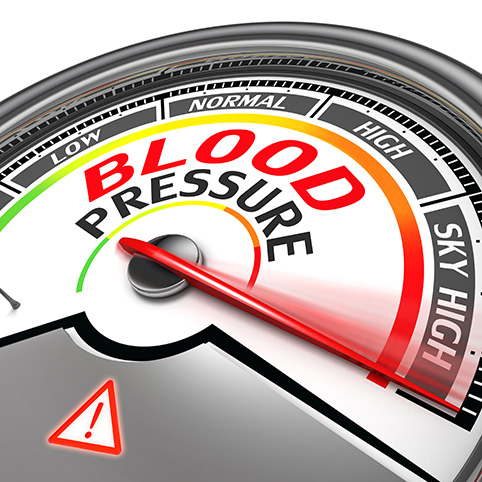
Photo: Deposit Photos
New kidney research from the University of Virginia School of Medicine is raising concerns that long-term use of drugs commonly prescribed to treat high blood pressure and heart failure could be contributing to kidney damage.
Patients should continue taking the medications, which include the well-known and widely used ACE inhibitors, the researchers say. But the scientists are urging studies to better understand the drugs’ long-term effects.
“Our studies show that renin-producing cells are responsible for the damage. We are now focusing on understanding how these cells, which are so important to defend us from drops in blood pressure and maintain our well-being, undergo such transformation and induce kidney damage,” said Maria Luisa Sequeira Lopez MD, of UVA’s Department of Pediatrics and Child Health Research Center. “What is needed is to identify what substances these cells make that lead to uncontrolled vessel growth” in the kidney.
Understanding Kidney Damage
Chronic high blood pressure affects a billion people around the world. The UVA researchers wanted to better understand why severe forms of the condition are often accompanied by thickening of the arteries and small blood vessels in the kidney, leading to organ damage.
They found that specialized kidney cells called renin cells play an important role. These cells normally produce renin, a vital hormone that helps the body regulate blood pressure. But harmful changes in the renin cells can cause the cells to invade the walls of the kidney’s blood vessels. The renin cells then trigger a buildup of another cell type, smooth muscle cells, that cause the vessels to thicken and stiffen. The result: Blood can’t flow through the kidney as it should.
Further, the researchers found, long-term use of drugs that inhibit the renin-angiotensin system, such as ACE inhibitors, or angiotensin receptor blockers, have a similar effect. These drugs are widely used for many purposes, including treating high blood pressure, congestive heart failure, and heart attacks, as well as preventing major heart problems. But long-term use of the drugs was associated with hardened kidney vessels in both lab mice and humans, the scientists found.
The researchers note that the medications can be lifesaving for patients, so they stress the importance of continuing to take them. But they say additional studies are needed to better understand the drugs’ long-term effects on the kidneys.
“It would be important to conduct prospective, randomized controlled studies to determine the extent of functional and tissue damage in patients taking medications for blood pressure control,” said Ariel Gomez, MD, of UVA’s Department of Pediatrics and Child Health Research Center. “It is imperative to find out what molecules these cells make so that we can counteract them to prevent the damage while the hypertension is treated with the current drugs available today.”
Tips for Lowering Blood Pressure Naturally
The National Heart and Lung Association (NHLBI)offers these tips for lowering your blood pressure naturally:
Healthy lifestyle changes
If you have high blood pressure, your doctor may recommend that you adopt a heart-healthy lifestyle to help lower and control high blood pressure.
Choose heart-healthy foods such as those in the DASH eating plan
The DASH (Dietary Approaches to Stop Hypertension) is defined as “a flexible and balanced eating plan that helps create a heart-healthy eating style for life.” NHLBI-funded research has shown that DASH combined with a low-salt eating plan can be as effective as medicines in lowering high blood pressure. Visit Living With the DASH Eating Plan or see Tips to Reduce Salt and Sodium.
Avoid or limit alcohol
Talk to your doctor about how much alcohol you drink. Your doctor may recommend that you limit or stop drinking alcohol. You can find resources and support at the Alcohol Treatment Navigator from the National Institute on Alcohol Abuse and Alcoholism.
Get regular physical activity
Many health benefits result from being physically active and getting the recommended amount of physical activity each week. Studies have shown that physical activity can help lower and control high blood pressure levels. Even modest amounts of physical activity may help. Before starting any exercise program, ask your doctor what level of physical activity is right for you
Aim for a healthy weight
If you are an adult who is living with overweight or obesity, losing 5% to 10% of your initial weight over about 6 months can improve your health. Even losing just 3% to 5% of your weight can improve blood pressure readings.
Quit smoking
Visit Smoking and Your Heart and our Your Guide to a Healthy Heart. Although these resources focus on heart health, they include basic information about how to quit smoking. For free help and support to quit smoking, you can call the National Cancer Institute’s Smoking Quitline at 1-877-44U-QUIT (1-877-448-7848).
Manage stress
Learning how to manage stress and cope with problems can improve your mental and physical health. Learning relaxation techniques, talking to a counselor, and finding a support group can all help.
Get enough good-quality sleep
The recommended amount for adults is 7 to 9 hours of sleep a day. Develop healthy sleep habits by going to sleep and getting up at regular times, following a calming bedtime routine, and keeping your bedroom cool and dark.
Changing habits can be hard
To help make lifelong heart-healthy changes, try making one change at a time. Add another change when you feel comfortable with the previous one. You’re more likely to manage your blood pressure when you practice several of these healthy lifestyle habits together and can keep them up.











